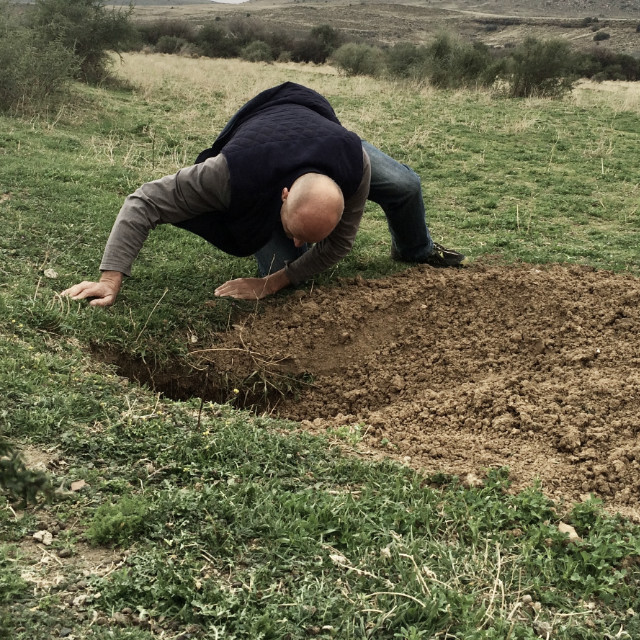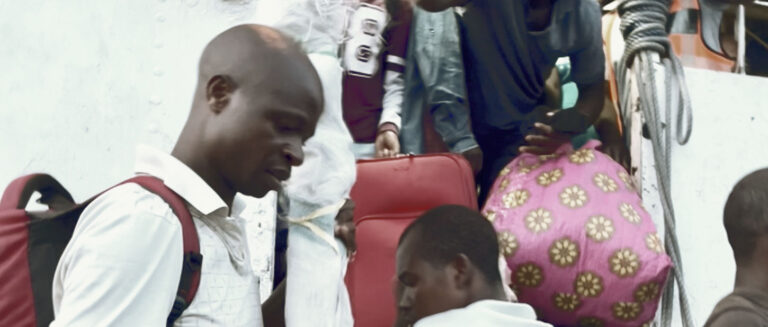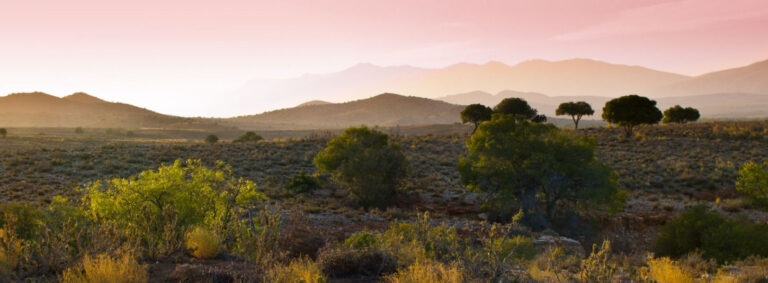Aardvark! | 2021 |
Searching for Aardvark |
“Gonna travel, gonna travel wild and free. I’m gonna pack my bags because this great big world is calling me” |
Elvis Presley – Harem Holiday |
I wake up in a cavern of stars. A hum in the distance indicates the incessant procession of tires pushing against the tar on Hospital Bend, while wind gusts hit the corrugated iron roof of the house. It also seems to rattle the bed I lie in. Is it pushing it off the floor, perhaps down a murky alley, or to a mountain top circled by whistling witches, laughing out madly as they see me? If so, what is the password to stop it? NOW!
I listen for an answer, but hear nothing, not even outside. It’s dead quiet. No one talks, no one flushes a toilet, no one coughs, no call to prayer, no shuffling in outside bins. It is truly middle-night, the moment of transformation, when all sounds vanish into nothingness, to darkness at its darkest.
I lie under my duvet, in a placenta of warmth and comfort. The only sound I hear is my breath. I breathe, – thus I am. Only then – suddenly – the palm trees sigh, as wind strikes them, carrying a song that was created by the waves, all the way from Antarctica.
I would prefer to turn over, sleep, and in the morning go on with my business. But sleeplessness won’t let me. Already it has a persona of its own, like an animal chewing my leg, or a mosquito buzzing in my ear. I can’t ignore it.
I know I am awake because I forgot something dear and can’t find it even in my dreams.
As my mind clambers out of its constrictions, shaking off its sleepy bondage, I feel the question: When last was anything strong enough to pull me out of my car, away from the gym, the job, the restaurant dinners? Even the mountain seems static these days. Has it given up calling me? Has the whole scenery become flat and predictable?
Cape Town is starting to look the same. How could that happen? I’ve got to get up. I’ve got to get close to something important. As long as I lie around in bed, turning, asking myself why I can’t sleep, the more aware I become of a truth I must connect to, a story I havent heard yet, a song I must dance with.
That’s when I leave, at three in the morning. Off into the car, the phone just in case ADT calls, a credit card for when I get hungry or run out of petrol. The neighbours are asleep – even Peter, the watchman of our street. Sold his place for R1.4 m. Only another couple of weeks before the transfer is due. I’ll miss him, his big hands filled with the exotic mushrooms he sells at the Biscuit Mill, his humour and wacko ideas about the world and conspirators. The night is soft, humid. I press the window down, but there is no smell.
Smells are what ultimately bond me to a place, to a person, to a time in my life, and Cape Town stubbornly refuses to smell unless the wind picks up from the north west to deliver a permeating waft of cold plankton, essence of the benguela upswell. Nothing that suffocates, nothing that intoxicates me. Is that why I lose Cape Town within the blink of an eye the moment I go overseas?
The mountain a crystal continuously washed clean by oceans, tides and wind. Unreal.
*
The car steers itself down the road along the Liesbeek River, at night inhabited by ibises, flamingos and the odd spoonbill, all huddling under willow tree branches that are ecstaticly whipped by the wind. On the R300 I pass a scene of flashing lights where police and ambulance cars have gathered at an accident involving several vehicles. Just as I drive past, I see a human head lying next to the road on a silver apron. Nothing else. It is tilted to the side, it’s mouth open.
Again I hear my breath.
Out near Paarl, the scenery shifts and the smell returns. Dry earth. Earth that knows it has the power to come back. A land that is not at the mercy of an irrigation system.
A shooting star. My wish? In this moment I hope I will always have a wish.
Where did that thought come from?
Next appears the dragon’s tail, a chain of scaly mountain tops barely silhouetted against a promising backlight of star constellations and galaxies. Africa is premier dragon land, I fantasize, as I push through the night deeper into the continent. Dragons that could kill ferociously, if one allows their lure, dragons that shield if one has managed to strike a pact with them. From Cape Town, these mountains look like shelter, the rest of the continent a threat, or a void. Once I’m on the other side, I know it is all rhetorics. I almost hit a genet. Later I see one flattened by wheels.
I follow the ramp up to the Hugenot Tunnel, two holes carved into the mountain, one blind, one staring me into the face. I always felt there was something fundamental about that tunnel: this wormhole between two realities; a birthing process – towards life, and so towards death. I enter a retina, alluring. I’m hypnotized, I push while being sucked in, I drive yet I am being catapulted out the other side to exit into a world, in which concrete images were pulverised eons ago into pieces of dancing atoms, ready to be assembled the way I want to.
Far from being a transfer, a transaction between one account and another, travel is an encounter that holds the possibility of getting lost, for good.
In the Hex River Valley I stop by the road to take a pee. A truck flashes a light. Then it is gone and I am alone, all open, all vulnerable, with all senses alert. This must be an archaic sensation in that thin buffer between comfort zone and danger land. The limit between civilisation and the lure of the wilderness, where life really happens. Counter-side, countryside. Rather stay close to the fire and be safe. Or venture out and be fully responsible.
I know I have started to arrive. The big picture emerges. I look up and see faint light from stars that travelled for many years to reach my eye. A stone on the ground that was formed inexplicable millenia ago. The first kiss. The fight my father put up against death.
As the Hex River valley opens up, emptiness prevails. De Doorns. A sign reads: „Beware of robbers stealing grapes“.
Am I supposed to do anything about it? Whose scenario is this? Do I care?
Fences, cobras, prickly bushes, and power lines that cut the land mathematically. A grave yard to any adjective, any extra thought. Another signboard reads „donkies“, a river. There is nothing else to say.
Eventually I reach the turnoff to Sutherland. A few farm buildings indicate a settlement in the kloof of „Verlatenheid“, – desolation. Termite mounds are carved out hollow, the holes empty and pitch dark. I get out of the car and begin to walk aimlessly. Stop. I feel like being in a bathtub and pulling out the plug. The water runs out, slowly I start to freeze.
Back into the car and further on to find refuge in that bizarre Lord Milner Hotel, stranded in time in the middle of desert, moored to the jetty of a dried up creek, anchored to spiny bushes, ready to be blown away.
Before I go inside, just as the mountain chain turns bright red from the morning sun, like a piece of iron heated up in a furnace ready to be hammered into shape, I stand next to a climax windmill rattling along, but the water it digs up is for evaporation only and seepage. The ground is thick with stuff, paraphernalia, each one guarding a lifetime of memories, scattered with barbed wire, rusted tin cans, broken ceramic, and glass. Ducks bask in the morning warmth, sunbirds suck on orange aloes. I see walkways laid out with crystals. They lead to nowhere. Vygies grow across black rubber tyres, bird drops splashed on dark mud, the earth a rooibos brown. Peppertrees sway above a small black grave stone protected from surrounding arbitrariness by white painted pebbles. It reads: «Cathy Jenkinson. 1930-2002. I came home.»
Anything can happen in Matjiesfontein, declares Cindy, the receptionist, before she shows me the way to coffee and rusks.
An hour later, i board a red double decker bus. John Theunissen, grand conferencier of Matjiesfontein dressed with black hat and suit, is announcing a city tour to Rovos Train passengers, who had arrived from Pretoria.
John starts his tour by referring to the hotel, originally built by Mister Logan, as a hospital. Later during the Anglo-Boer war, when more than 10,000 soldiers camped out in the bush, Winston Churchill and a Sultan of Sansibar stayed here. Today Matjiesfontein has a population of 300.
“To the right you can see the transportation museum, and to your left is the church, where you can get married only to divorce yourself later in the pub. And now we drive to the right, because we can’t go left. It’s showtime.»
We reach a large empty square. Plastic bags floating past. “This is where the first international cricket match was played. South Africa played Great Britain. South Africa won. Today nothing happens here anymore. The only ones playing cricket here now are the aardvarks.”
“And now we have reached the end of the first half of our ten minute City Tour. We drive right because we can’t drive left. It’s showtime.”
We continue past the prison, the assembly hall of free masons, the residence of the Logan family with 25 rooms, including the first telephone in the country. “The guy who owned the first telephone in the country could use it to talk to the guy who owned the second telephone in the country.” Then the bus turns right and we reach the end of the tour. “I see you just now in the Pub, — it’s showtime”, John calls out to his guests.
I wait for him until everyone has left and compliment him on his tour. “You put some real crowd pleasers into your tour, but nothing got everyone laughing as much as the idea about cricket playing aardvarks». Why do you think aardvarks trigger that response? What is it with them?»
“Well”, he replies, «before I began my tours there was nothing to entertain people with. So I created something of my own to make people enjoy themselves. Everyone here knows about cricket but it’s difficult to create excitement if all you see is an empty field. In a way that particular field is a symbol of the Karoo. It looks dead when it’s actually so alive. it seems to be wasteland when in actual fact it is a treasure chest. There are so many plants in it and animals you can’t see and most of all stories, stories that get lost unless they are told. The aardvark is part of this land and everyone here has heard of it, every one thinks it looks really weird, but very very few people have ever seen one in the flesh, and the ones who did, have never forgotten the sight. It’s as if it triggers some photographic memory. They are a bit of a mystery really, especially in this part of the world, and the very thought, their looks or even their name brings out a warm response.”
“Have you seen one before?”
“Once I did, and every day I do – About fifteen years ago, near Graaf-Reinet, it suddenly ran across the street, it was very early in the morning, still dark, and freezing. I couldn’t believe how large it was. I was totally terrified.”
“And how come every day?”
John puts on a grin. “Follow me”, he says, “I’ll show you something”. He opens the door to the pub. It’s crammed thick with people ready for entertainment. “John, sing us a song,” someone calls out. Others are clicking their beers, for an early morning toast.
John nods to the wall next to the piano. I see animal heads, fur and horns. And then, in the middle of this dried up vertical serengeti a pair of pointed large ears. And two large nostrils at the end of a long snout. And eyes that look at me.
“That’s it”, says John.
I shift my position to get closer. I then find myself moving to the side – yet the eyes are still watching. Like those of a Mona Lisa. it’s difficult to get away from them.
«Doesn’t it feel like it’s smiling at us?», John asks.
“A Song John!” Someone shouts.
John sits down at the piano, and plays “My Bonnie is over the ocean”.
I walk to the bar. Next to me are Kevin and his friend Annie. They both live in Cape Town and come to spend a few days in Matjiesfontein. Still intrigued by the animal on the wall, I ask Kevin, if he has ever seen an aardvark.
“Oh yes, sure I have seen one.”
“No you have not”, Annie corrects him. “I have seen one in Namibia. You were there too, but you were too slow to see it.”
“Ok ok, but I do know of a good recipe to cook one.”
“No man”, Annie exclaims, “that wasn’t a recipe for an aardvark, that was one for a pangolin”.
*
A few years ago I got a mail from my anthropology teacher, asking me if I had yet seen an aardvark. At the time she was working in the West African country of Guinea-Bissau, doing research on the Mandinka tribe. The Mandinka tell the story of a young warrior who ambles through the woodlands to suddenly encounter a female aardvark. To the warrior’s surprise, the aardvark talks to him and even invites him to her large underground cave. He follows her to discover the treasures that lie beneath the surface of the earth. After they mate, their common children are so embodied with both human and aardvark knowledge that the story claims they conquered many lands to build a large kingdom.
At the time of the mail, I knew very little about the aardvark. In fact I only remembered it from children movies, where squeaky human voices were emanating out of a funneled snout in front of droopy eyes that reminded me of some dear relatives at family gatherings that start with too much cake and end with too much schnapps. Sort of funny. Yet, after receiving her mail, I began to read up on the Orycteropus afer, as it is called in academia, the only living species of the order Tubulidentata. Not only did I learn about its role as a trickster figure in African religions, or that Nigerian shamans construct amulets of their nails, skin, heart and skull for thieves to easier penetrate walls, or that they are notorious for digging up vast stretches of land for the purpose of shelter, food, or covering up their poo pellets, but also that they are very, very difficult to see in the wild. To see an aardvark, one needs some serious luck. Or X-ray vision to look beneath the surface. Apparently the Bushmen could do that. They read the dry landscape like an organic supermarket of slowly ripening and sweetening roots and bulbs. They knew they were walking on top of their own Fruit n’ Veg City. And that somewhere deep down in it, the aardvark would hide in its labyrinth.
I leave the pub and walk into the day. I am ready to believe John and look for signs of life. Maybe that’s the counter side I had been looking for. The place that opens up for me, that pulls me in and does something to me. Something that has the power to mess me up.
I had asked John about the exact location of the aardvark he saw fifteen years back. He remembered it as being only a couple of clicks outside of Aberdeen, on the road that winds up towards Graaf-Reinet. „That place is aardvark country, I’m telling you,“ he insists.
“It’s quite a drive to get there, and once you arrive it may literally take forever to find one, but you sure are going to have a good time looking for it. And if you don’t find one alive, go to Karoo Taxidermy, they are the largest taxidermist in Africa. They might have one that a farmer just shot.“
Not knowing if that was a good omen for my search, I turn back onto that mighty conveyor belt that is the N1.



